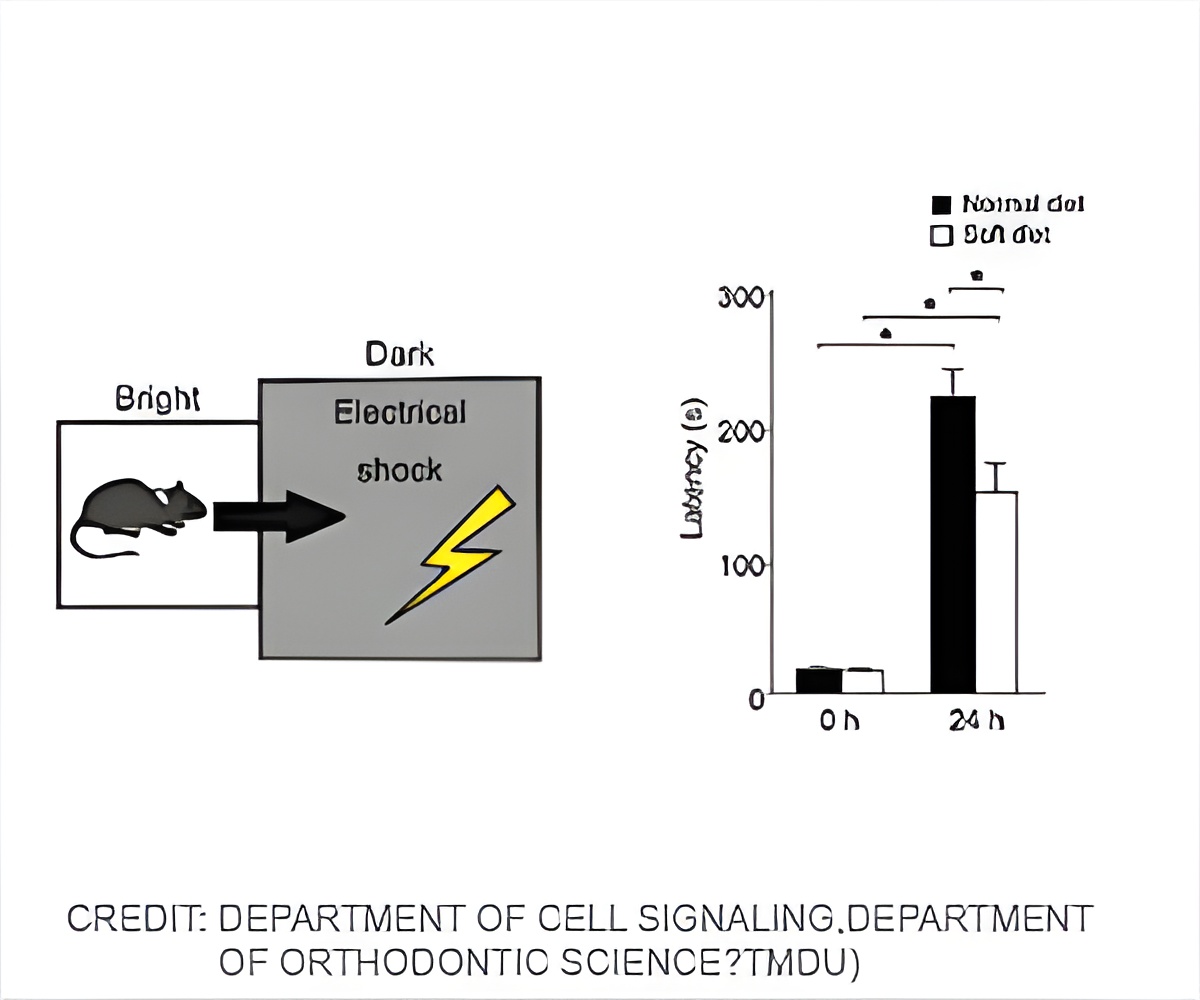Researchers have found that masticatory function and brain function are linked, which helps prevent disorders of brain functions related to memory and learning.

‘Dementia and memory or learning dysfunction can be prevented by maintaining or strengthening masticatory function.’





Recently, deterioration of masticatory function due to aging and the consequent reduction of brain function has become major problems. Although the relationship between mastication and brain function is potentially important, the mechanism underlying is not fully understood.In order to prevent disorders of brain functions including that related to memory and learning, it is an urgent task to elucidate the linkage between masticatory function and brain function.
Researchers found that growth of the maxillofacial bone and muscle were suppressed in mice with reduced masticatory stimuli by feeding with powder food. In addition, behavioral experiments revealed that reduced mastication impaired memory and learning functions.
In the hippocampus, a major component responsible for memory, neural activity, synapse formation and expression of brain-derived neurotrophic factor (BDNF) were reduced in these mice.
Thus, the authors demonstrated that the changes in masticatory stimuli can modulate neurogenesis and neuronal activity in the hippocampus, functionally contributing to cognitive function.
Advertisement
It is also suggested that further elucidation of the mechanism linking mastication and brain function can lead to novel treatments and preventive measures for memory/learning dysfunction in the future.
Advertisement
Source-Eurekalert














